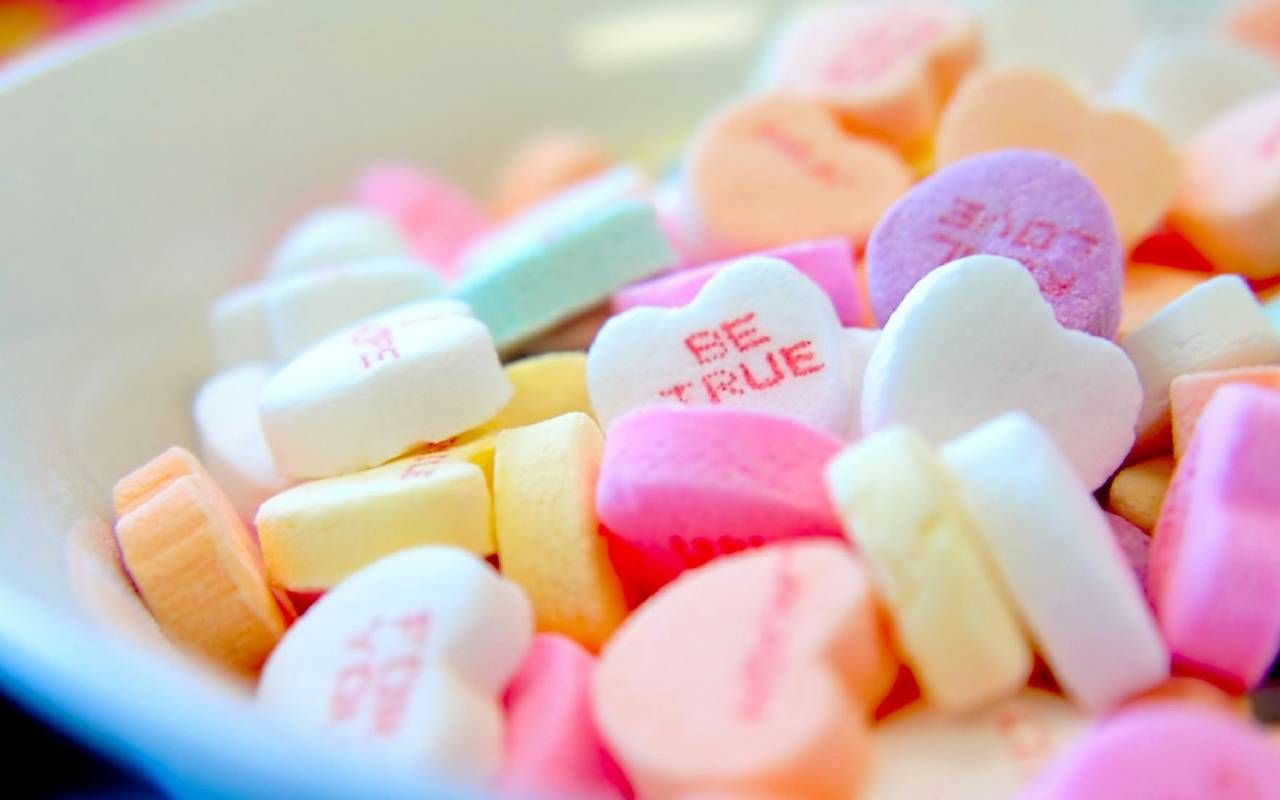How to Love Being a Caregiver: A Valentine
No, I never learned to love being a caregiver. But I learned a lot about love, being a caregiver.
"Everybody at some point really hates being a caregiver." That's what Amy Abrams, former director of education for Alzheimer's San Diego, told me, and, believe me, it resonated. That may sound like a perverse way to start a Valentine for caregivers, but stick with me and we'll get around to the candy hearts.

"You're a caregiver. This is your life."
Caregiving Is a Blessing?
One sunny day in Carlsbad, California, I was driving to visit my mother (I was her caregiver for 13 years). The seatbelt on the passenger seat was strapped around a 12-pack of Ensure. My giant tote bag was filled with Kleenex and paper toweling, a new pair of reading glasses and assorted cleaning materials for the tray on Mom's walker. A voice from the car radio broke into my thoughts. A clergyman on some interview show was saying, "Caregiving is a blessing."
"Really?" I thought. "Really?" Watching someone slowly being consumed by frailty, sliding into cognitive decline — no, for me, caregiving was anything but a blessing. Cynically I figured he was just testing out some theme for next Sunday's sermon.
'I'm Losing My Life'
Caregiving is stealthy — for me it had sneaked up from a simple offer to help with the groceries until, as my mom's needs expanded, it had just about engulfed me. Maybe you know the story. I was struggling and stressed out, angry and then guilty for feeling angry.
I began to talk to other caregivers, started an informal support group where we swapped stories and tried to help one another. I sought out hospice workers, palliative care doctors, psychologists and social workers, looking for answers.
And then there was this fateful phone call. I was talking with Carmel Murphy-Kotyan, a Caregiver Consultant and director of CMK Home Care in Massachusetts. "I'm losing my life," I almost screamed over the phone. She paused and then said simply, "You're a caregiver. This is your life."
That moment changed everything. Man, she had nailed it. I knew I was resisting being a caregiver. I was trying to stuff it into a corner of my life and it wouldn't stay there.
Caregiving Is What You Do
So I began to lean in, even when I felt depleted and overwhelmed. Maybe this is shocking — and I suspect the minister would be taken aback — but as a caregiver, you can outrun your love. Sure, it begins with a loving impulse, but then the ever-changing demands, day after day and month after month, can leave you numb with exhaustion.
And there is, beneath it all, the grinding feeling of inadequacy because, ultimately, you cannot cure their sickness and you know how this journey will end.
Let's face it, maybe your person is difficult, maybe you never really had a close relationship with them in the first place. Maybe your person's world has shrunk to be mostly about them, their pain, their fears, their needs. Perhaps they ask about you but don't really listen to your answer. Maybe they are depressed, and nothing you try will make them smile.
And there is, beneath it all, the grinding feeling of inadequacy because, ultimately, you cannot cure their sickness and you know how this journey will end.
But you keep on keeping on. You've run right through all the love you had and are driving on empty, perhaps out of obligation, perhaps because you're the only one in the family who lives close to them, perhaps because you vowed to care for your person in sickness and in health, till death.
My friend Fred was the caregiver for his mother for over a decade. "It was fine until the night they discovered her wandering along a four-lane highway…in her bathrobe." So he found a memory care facility. "I would go there every week," he said.
There's also something unique about caregiving — a kind of intimacy we don't often have with another human being.
"As the dementia continued, my mother stopped talking. Sometimes she would recognize me, sometimes not. I would do the pillbox. I would get her to do a walk. If she needed socks, I would get her socks from Target. I had to feed her. I would sit and hold her hand. I did what I could. There was no feedback, none whatever," Fred explained. "That's all there is. This is part of love. You do the level best you can. This is what you do."
When Your Heart Melts
There's also something unique about caregiving — a kind of intimacy we don't often have with another human being. Caregivers tell me of their discoveries as they go through keepsake boxes with their person, discovering old photos, love letters and whole sides of their person's life that would otherwise have been lost. There's the son who took care of his mother for four years, learning things he never would have known if he hadn't been with her for breakfast, lunch and dinner.
Yosaif August, author of "Coaching for Caregivers" and caregiver for his mother and father for over a decade, says, "The times I had with my parents were some of the most poignant moments in my life. I got to see my father in more ways than I imagined. He approached his surgery — a seventeen-hour two-surgical-team procedure — with an astounding degree of courage. After that surgery, when it was clear that the cancer had returned with a vengeance and his days were limited, he had the courage and strength to surrender, to be at peace."
Helen moved across the country to take care of her mother. "She was an easy patient, which is not to say I didn't resent it at times and say when is this going to end. At the same time I realized how lucky I was to spend time with her. To revisit the home that I was desperate to leave when I was in my teens. I got to appreciate her and all she had been through. This has been a gift."
I knew this old refrain by heart, but while I listened, I saw that she was adding up her life, getting ready to let go, needing to share this memory one more time.
And I cherish one particularly special moment with my mother. We were sitting in her apartment in Assisted Living and she began to retell this story about life with Dad in Connecticut, where my brother and I grew up.
As a hobby, Dad built a barn and raised sheep. Mom was an artist, and a city girl. "When your father was away on his business trips, I had to go out to that barn on chilly February mornings, break the ice in the sheep's water pail, and put fresh hay in the feed rack. Every morning," she said, almost shivering in recollection. "I hated that."
I knew this old refrain by heart, but while I listened, I saw that she was adding up her life, getting ready to let go, needing to share this memory one more time. And, as we sat there together, without any need for words, our hearts just connected.
Dr. Daniel Given knows the world of caregivers well. He's a geriatrics specialist and medical director at The Elizabeth Hospice in southern California. "Often," he says, "individuals and their loved ones have an opportunity to connect on levels that they don't connect on when they aren't confronted with mortality, the concept of death. Their connections are deeper."
"Caregiving is difficult. It's hard. It's tough. Afterwards people will say, 'I'm so grateful, even though it was hard. I'm so grateful to have had the opportunity to spend that meaningful time with my loved one,'" Given says.
"You live for those thirty seconds when you look at your loved one and your heart melts."
Learning to Love, Being a Caregiver
People talk a lot about romantic love, but this is about a difficult, demanding, gritty, sometimes one-way kind of love, and that rare chance to live out your love for someone. Maybe caregiving is a kind of blessing after all. No, I never learned to love being a caregiver. But I learned a lot about love, being a caregiver.
So on this Valentine's Day, here's a virtual bunch of candy hearts. Forget the trite ones that say "Be mine" or "Kiss me." It's not about that kid you had a crush on in eighth grade. It's a different kind of love. It's about what you're doing now. Showing up every day, holding your person's hand on their last journey. The candy heart that's for you is the one that says "True Love."
Happy Valentine's Day.


